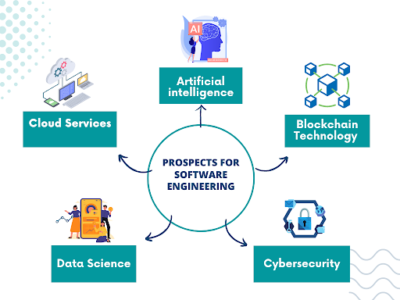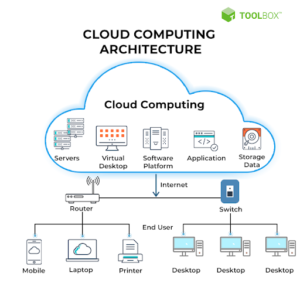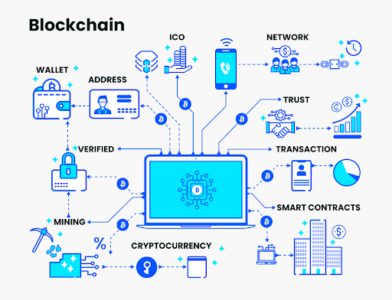
The software industry is continually changing. Over time, new software trends emerge. The nature of revolution is to adapt to the expanding demands of the consumer market.
Between 2020 and 2030, the Bureau of Labor Statistics predicts a 22% growth in employment for software developers. In order to put that figure into perspective, the average growth rate for all occupations over that time period was only 8%.
Robotics engineers (with a growth rate of 40% annually), Full Stack engineers (with a growth rate of 35% annually), Site Reliability Engineers (with a growth rate of 34% annually), Data Engineers (with a growth rate of 33% annually), Back End Developers (with a growth rate of 30% annually), and Cloud Engineers (with a growth rate of 27% annually) all experienced unprecedented growth and made the top 15 jobs list.
The future of software development will be covered in this article, along with relevant statistics and market trends. So let’s get going.
What exactly is Software Engineering?
Software engineering as a course is the detailed study of designing, developing, and maintaining software applications. It avoids the issues associated with low-quality software projects and ensures that software and applications are delivered to clients within the timeframes specified. It consists of a collection of principles and procedures that can assist a person in gathering the necessary knowledge to design good software within time and budget constraints.
There is a skills gap in software engineering in the employment market. According to Forbes, the United States has had a recent scarcity of software engineers and has over 920,000 open IT roles. As a result, the job market will be competitive for each year’s graduates of coding boot camps, full stack developer courses, and software engineering tracks.
In practice or as a career option, software engineering is a profession that encompasses a variety of responsibilities related to software applications. This could include designing, developing, implementing, or even monitoring them on a regular basis for upgrades and enhancements. It is the process of analyzing user requirements and providing them with the best solution.
The abstraction of programming languages is increasing.
One of the most obvious trends in software engineering is the usage of increasingly abstract programming languages.
There is a reason why software developers are engineers. The work requires innovative problem-solving and unusual thinking, thus more abstract programming languages are ideal.
Python is now used for more than just data science. Because it is open source and contains a sizable pre-built library that supports machine learning, big data, and cloud computing, Python is rapidly becoming the top programming language. Nearly all external dependencies are eliminated by the huge library and strong support. Python is used in practically every major trend in software development, including artificial intelligence and cloud computing.
Java is a very helpful language in other contexts besides web development. One of the most popular languages for cloud computing is Java.
The growth of cloud software development over the past few years is directly related to the rise in remote work. You shouldn’t be concerned if you are skilled in Java and Python because there will be a great demand for cloud development jobs.
Now is an excellent time to learn high-level programming languages like Python and Java because tech companies and startups are looking for engineers who are knowledgeable in those languages and practice java interview questions to get in the job! If you identify as a cloud developer, you’ll almost certainly have work for many years to come.
Prospects for Software Engineering
In emerging economies like India and China, where businesses are increasingly investing in technology and digital transformation, the demand for software developers is rising quickly.
The drive for innovation in the technology industry is unmatched by any other, which is a major factor in the increasing demand for software developers. These are some of the most notable trends that are predicted to alter the landscape in the future.

Cloud Services

It is essentially necessary for most businesses to migrate to cloud-based services, not just as an option. Even though cloud computing has been available for a long time, it is just now starting to acquire popularity as a hosting option for businesses across many sectors. Other companies have been motivated to follow in the footsteps of corporations like Facebook, General Electric, eBay, and Fitbit, which have already fully embraced cloud-based technologies.
There are several benefits to moving to the cloud, including significant cost savings, enhanced security, ease of use, greater scalability, and the possibility for seamless communication. Additionally, a lot of cloud-based organizations offer cloud analytics, a crucial tool for those who base their decisions on facts
- Artificial intelligence
AI will undoubtedly have an impact on all facets of software engineering. It is used at every stage of the software development process, making it a vital subject for software engineers to study and specialize in. Input for software design, the best facts and data are acquired by engineers with the aid of artificial intelligence.
The demand for software engineers with these talents is growing as artificial intelligence and machine learning are developed. With a 74% annual growth rate over the previous four years, LinkedIn claims that AI expert is the job with the fastest growth potential in the United States.
- Blockchain Technology

Other industries are now realizing the full potential of blockchain technology since Bitcoin and its children acted as the proof of concept for it. Blockchain’s appeal to the banking industry stems from its capacity to increase party trust through security and transparency.
However, its applications are not just restricted to the financial sector. Blockchain-based shared, unchangeable ledgers can be used to trade both tangible things like real estate and automobiles as well as abstract assets like intellectual property or copyrights.
- Cybersecurity
The need for financial institutions to be able to reassure customers that their data is protected behind impenetrable digital locks is one reason why the cybersecurity sector continues to be a hot one for developers. Companies that need to protect sensitive data from hackers and thieves continue to place a high focus on cybersecurity. The need for greater security arises from the fact that cyberattacks are becoming more complex and creative. Future cybersecurity will probably play a big part in software engineering.
- Web development
Web development-related software engineering has great growth potential and employment opportunities. Businesses are looking for talented software engineers that can create and maintain their web apps due to the rising demand for online presence and digital transformation
The following are some of the important areas in web development with the greatest growth potential:
- Full-stack development- There is a great need for developers that are proficient in both front-end and back-end development. The complete web application is created and maintained by full-stack engineers.
- Mobile-first development – Web apps that are optimized for mobile devices are in demand from businesses due to the growing number of mobile users. Mobile-first development expertise gives developers a competitive advantage.
- User experience- Web applications must have a positive user experience (UX) to be successful. Web application developers who are capable of making these are in high demand.
Future of software engineers
Our predictions for the future state that software code will automate the majority of employment globally and that AI, machine learning, and data science will have an impact on all fields. Experts in software engineering will be required to create, maintain, and enhance the functionality of all software used worldwide. As a result, there will be a greater need for software engineers in managerial positions such as managing automated software in the future.
According to a survey by Grand View Research, the size of the worldwide software development market is anticipated to reach $1.3 trillion by 2025.
The market’s constantly changing client expectations for software have allowed businesses to innovate in new ways. Software engineers are working hard to master new languages and stay up to speed with trends even though the new technologies being utilized today require new abilities and the support of skilled and experienced software engineers.
To work on data privacy and transparent AI applications, software engineers will need to have higher standards of ethics and integrity in addition to technical expertise. Future possibilities for software developers will improve as they adjust to the rapidly evolving digital environment.
Conclusion
Software development will continue to advance. Software development may incorporate a lot of cutting-edge features and technology. All of these could alter the current appeal of software development.
Future employment prospects for professionals in the field of software development are bright. If you enjoy coding with computer languages and want to pursue a career in it, you can choose to program.
